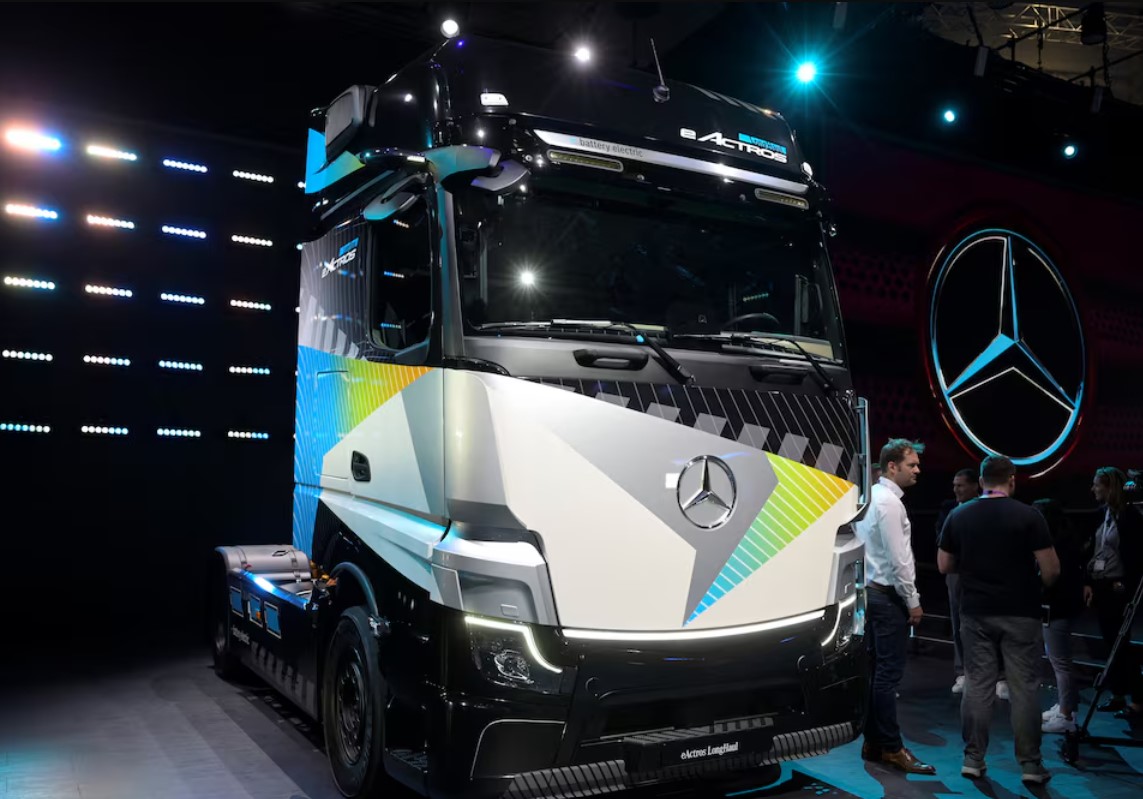Volvo and Daimler Join Forces: Tech Venture Aims to Revolutionize Trucking and Slash Costs

In a landmark move poised to reshape the future of the trucking industry, European giants Volvo Group and Daimler Truck have announced a strategic joint venture focused on developing a cutting-edge, software-defined vehicle program. This collaboration, unveiled this week, aims to significantly reduce costs, streamline operations, and decrease reliance on external suppliers, marking a pivotal moment in the evolution of commercial vehicles.
The automotive landscape is rapidly shifting towards software-defined vehicles, where software plays a central role in controlling and enhancing vehicle functionality. Recognizing the immense potential and the substantial investment required, Volvo and Daimler – long-standing competitors in the truck manufacturing sector – have decided to pool their resources and expertise. This joint venture signifies a departure from traditional competitive dynamics, demonstrating a shared understanding of the need for collaboration to thrive in a rapidly changing market.
Driving Forces Behind the Partnership
Several key factors fueled this groundbreaking partnership. Firstly, the escalating costs associated with developing advanced technologies, particularly in software, have become a significant burden for individual manufacturers. By combining their research and development efforts, Volvo and Daimler can share the financial load and accelerate innovation.
Secondly, the desire to reduce dependence on third-party suppliers is a major driver. The current reliance on external vendors for crucial components and software introduces vulnerabilities and potential delays in the supply chain. A joint venture allows for greater control over the development and sourcing of key technologies.
Software-Defined Vehicle Program: What to Expect
The core of this collaboration revolves around a software-defined vehicle program. This means that the trucks of the future will be increasingly controlled and enhanced through software updates and over-the-air capabilities. Expect to see improvements in areas such as:
- Autonomous Driving Features: The joint venture will likely accelerate the development and integration of advanced driver-assistance systems (ADAS) and potentially, full autonomous driving capabilities.
- Enhanced Connectivity: Seamless connectivity will be crucial for fleet management, real-time data analysis, and predictive maintenance.
- Improved Efficiency: Software optimization will play a key role in maximizing fuel efficiency and reducing emissions.
- Customization and Flexibility: Software-defined vehicles will offer greater flexibility in terms of customization and functionality, allowing operators to tailor their trucks to specific needs.
Impact on the Industry & Future Outlook
This partnership is expected to have a ripple effect throughout the entire trucking industry. It sets a precedent for greater collaboration among competitors and signals a clear shift towards software-centric vehicle development. Analysts predict that other manufacturers will likely follow suit, forming strategic alliances to remain competitive. Furthermore, the focus on software-defined vehicles will drive innovation in areas such as artificial intelligence, machine learning, and cybersecurity.
The joint venture between Volvo and Daimler represents a bold step towards a more efficient, connected, and technologically advanced future for the trucking industry. As the world continues to demand sustainable and innovative transportation solutions, this collaboration is poised to play a crucial role in shaping the landscape of commercial vehicles for years to come.






